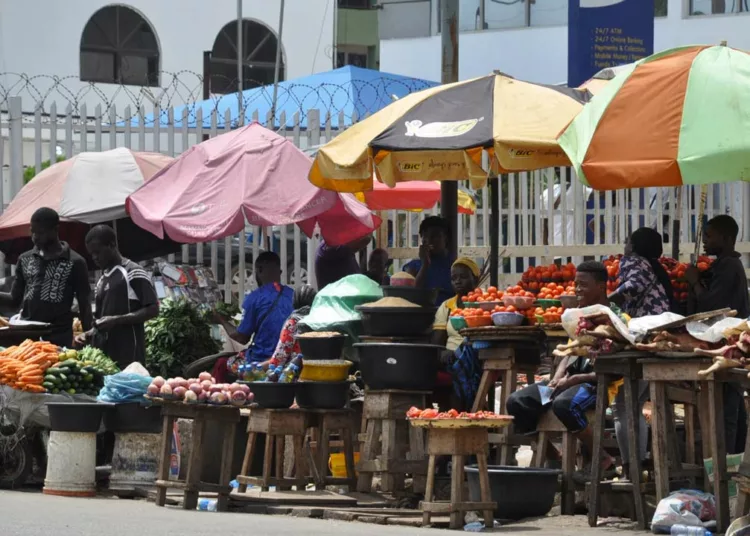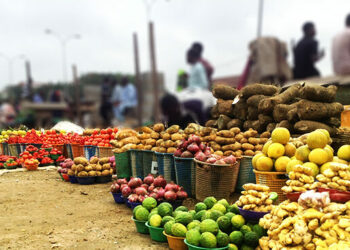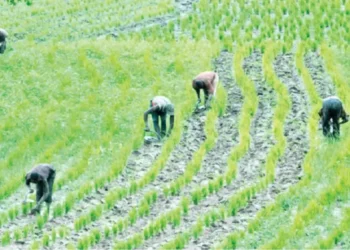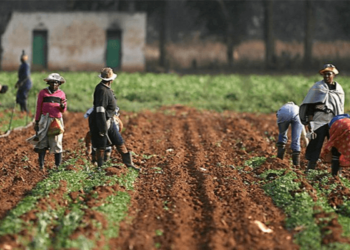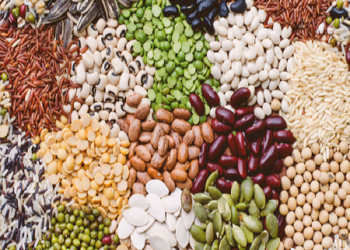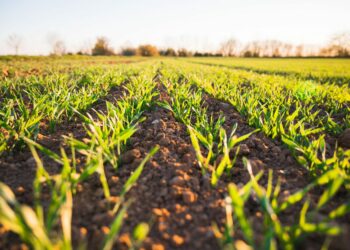Consecutively, Nigeria’s 2022 headline inflation mostly driven by high cost of food items has continue to put pressure on the already bad-shaped economy.
Insecurity, climate change and the devastating impact of the 2022 flooding on farmlands and Russia-Ukrainian war on the other hands remain the key drivers that have plummeted the one time viable agricultural sector and worsen food production prospect for the year.
In October 2022, Nigeria’s inflation hit a record high of 21.09 per cent in a 17 years record breaking, according to the National Bureau of Statistics(NBS).
This persistent rise in inflation may likely worsen the economy and undermine some laudable achievements in the agricultural sector.
Gains such as high production of rice and other grains made through the the laudable Anchor Borrowers Programme in the previous year may be eroded except federal government implement aggressive policies that will accelerate food production this dry season to push the prices of food commodities down by next year.
Recently, the Central Bank of Nigeria (CBN) governor, Godwin Emefiele said if not for the current inflation rate, Nigeria’s economy would have added significant growth upto 40 percent as the 21.09 percent inflation rate remains unhealthy for the country’s economy.
Speaking during the apex bank Monetary Policy Committee Communique presentation in Abuja, the governor noted that such inflation rate was hurting the growth of economy.
Already 133 million Nigerians representing 63% of persons living within Nigeria are multidimensionally poor which has signified worrisome economic woes for the country.
According to the data the national MPI is 0.257, indicating that poor people in Nigeria experience over one-quarter of all possible deprivations.
An agricultural expert and national president, All Farmers Association of Nigeria (AFAN), Arc Kabir Ibrahim said the continue rise in food inflation potents negative prospect for Nigeria economy and can cause social unrest and erode some gains recorded in the agricultural sector.
The farmers’ president said, “Food inflation is a serious threat to the national economy because it can weaken productivity and impact on health as well as wellness of the entire populace.
Nigeria’s economy will be adversely affected and that will bring about social unrest and general instability”
“The gains in agriculture will disappear if food inflation persists and it will create food insecurity which will exacerbate the pervading poverty affecting 133,000,000 Nigerians according to the recently released NBS report coined multidimensional poverty index(MPI)”, Arc Ibrahim added.
According to NBS data, growth in the agricultural sector in the fourth quarter of 2020 was inconsistent and slowing but surprisingly rose to 3.58 percent in the fourth quarter of 2021 and again slowed to 3.16 percent in the first quarter of 2022.
In addition to this downward trend in the economic growth are emerging challenges of the 2022 floods which has destroyed farmlands worth billions of naira and depleted large quantities of food production.
Another agricultural stakeholders and president of Potato Farmers Association of Nigeria (POFAN), Chief Daniel Okafor, the devastating impact and aftermath of the 2022 flood is enough to trigger woeful economy in 2023 just as the recent Preliminary Food Security and Nutrition Analysis (Cadre Harmonise CH ) results released by the federal ministry of agriculture and rural development projected about 25.3 million Nigerians across 26 states and the Federal Capital Territory (FCT) to face acute food and nutrition insecurity between June and August 2023.
According to Okafor, if federal government do not show concern on the flood victims, inflation will continues to skyrocket and worsen food scarcity and in Nigeria.
He said, “Agriculture is on concurrent list in our annual budget but we are playing with it. The first professional job on earth is Agriculture. Food scarcity and inflation will worsen Nigeria.
With the aftermath of the flood and no concern on the victims, inflation continues to skyrocket. Indeed farmers are not cared for. In other countries those affected by nature problems are taken care of atleast to mitigate and prevent pain and losses”.
However, minister of agriculture and rural development, Dr Mohammad Mahmood Abubakar had gave assurance that the country will not experience food shortage in 2023.
He reaffirmed that Nigerians don’t have to panic over food shortage as the government has begun restocking of the strategic food reserve with 200,000 metric tonnes of assorted food commodities.

